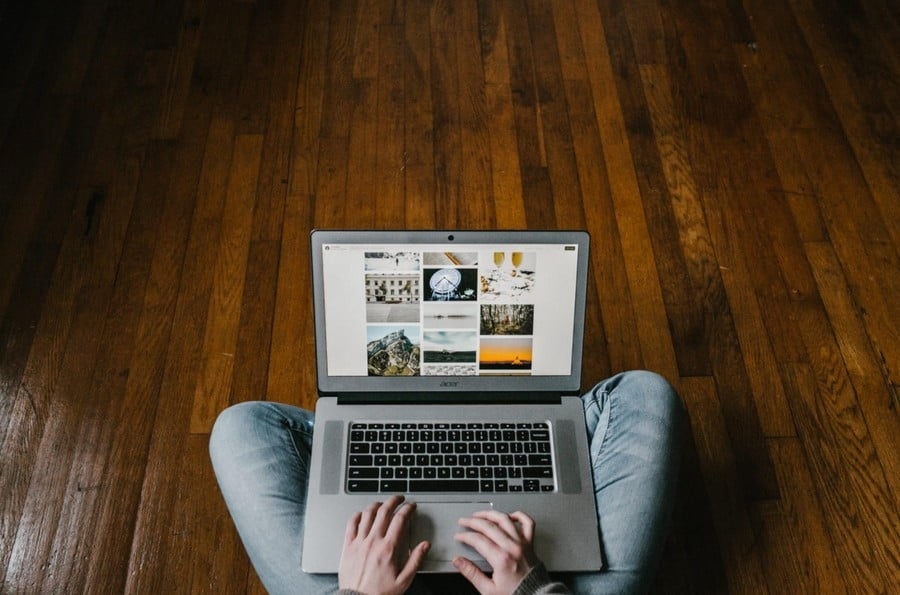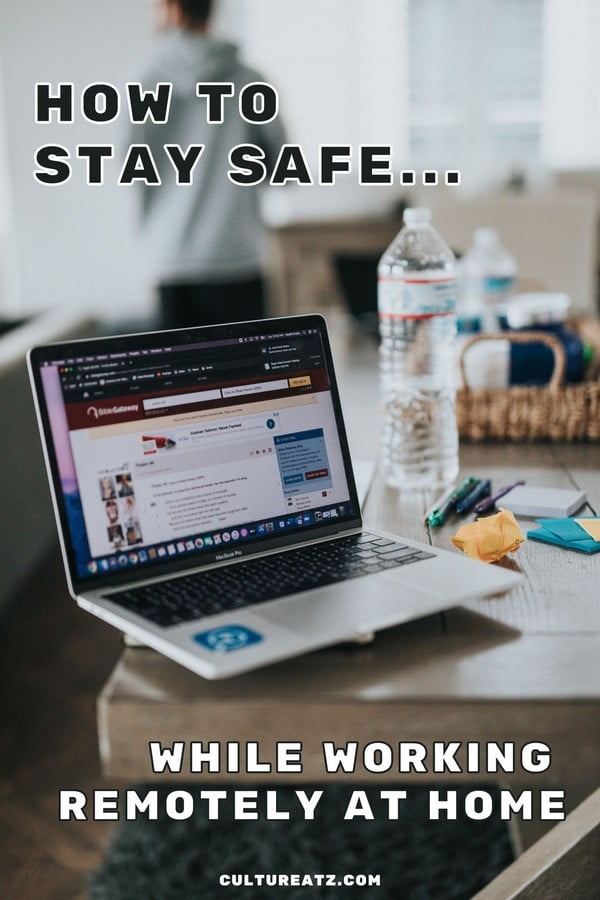COVID-19 has forced many businesses to send employees home and, until further notice, allow them to work from home. While working from home carries plenty of benefits when it comes to productivity, there is one area that suffers: cybersecurity.
I have been using a VPN for years now, whether at home or when I am staying safe online when I am traveling. When I started working online from home to build my own business, a few months before covid, I realized just how important it was to stay safe while working remotely to protect not only my work but the online access granted to me by my clients. This article is very special to me and I am thrilled to share it with you…
Businesses pour time and money into perfecting their security systems. That can’t be done at each individual’s home. So, what can you do as a remote worker to protect yourself and your work? Well, there are a few ways.

Image from Unsplash.com – Disclaimer: Thank you to Techwarn Media for contributing to this sponsored article.
5 TIPS TO STAY SECURE WHEN WORKING FROM HOME
1. Encrypt Data With a VPN
The pandemic has limited many people’s ability to work anywhere else but at home. Going to public places is not recommended, if not outright banned. However, when places begin opening up again, think about using a VPN when you go online in the local coffee shop.
See, public networks lack critical security measures that are expected out of proper networks. As a result, if you use a public network without any encryption software, your data is free to be collected by cybercriminals on the same network.
A VPN encrypts the data your device shares across a network and masks your online activity, meaning that downloading a VPN on your device enables you to browse in private, even on public networks.
2. Protect Your Network with a Strong Password
Reputable businesses spare no expense when it comes to protecting their network. Enterprise firewalls that span the entire network, a knowledgeable IT team, and proper physical security measures such as vetting employees’ devices and restricting what they can do on them: are only a few of the restrictions businesses put on their networks so that the network can stay free of malware, viruses, and cybercriminals.
Home networks aren’t like business networks. Consumer-grade hardware doesn’t allow the same level of security to stay safe while working remotely, and most remote employees probably don’t focus much on their networks. However, there is one thing every remote employee should do: set a strong password for their network.
ISPs send out gateways/modems configured with a default password. These passwords are often weak and easily hacked. So, if you haven’t done so already, set a network password that is longer than 16 characters, contains letters, numbers, and symbols, and is something that can’t be easily guessed. In other words, use a random password generator.
3. Use Work Emails and Services to Communicate
When working from home, it may be tempting to use your personal accounts to respond to colleagues or get some work done. After all, what harm could use your personal Gmail account to send over some work to your boss do? As it turns out, it can do plenty.
Most businesses take advantage of enterprise software suites that allow IT teams to set security measures, logins, and vice versa. For example, a business may opt to use an enterprise-level Microsoft Office Suite to share assignments and projects amongst each other.
Using these rarely brings in any risk. IT teams can manage security levels, user privileges, and content filters. Using your personal accounts, however, means that you’re missing all of these security features. In other words, it would be easy for cybercriminals to steal that data.
Stick to work accounts when working from home. Use your personal account for, well, personal activities.

Image from Unsplash.com
4. Pay Attention to Your Physical Surroundings
It’s important that you secure your devices as best you can. But that doesn’t just mean downloading a VPN, an antivirus, maybe an adblocker, and going on with your day.
No, protecting your devices goes further than cyberspace—users need to make sure their devices are physically safe.
When out in public, keep your device(s) by your side at all times. Don’t leave them alone and require a password to use the devices. Take advantage of device location services such as Find My iPhone. Make sure your devices’ screens aren’t facing anyone else.
Many people neglect the physical security of their devices for proper cybersecurity. The truth is, it’s possible to have both proper cybersecurity and physical security. Never think otherwise.
5. Be on the Lookout for Phishing Scams
A hacker community by the name of “warez” began phishing AOL users by generating random, valid credit card numbers to open AOL accounts. They used these fresh AOL accounts to send spam mail to other users, usually in an attempt to gather personal information. This was in 1995.
AOL put an end to this practice. But soon after, in 1996, phishing scams would become commonplace. From emails spoofing valid emails of AOL employees to the outlandish Nigerian Prince scam, phishing began gaining a foothold in the email space. Fast forward to today, and it isn’t easy to imagine an internet without them.
Modern phishing scams vary in quality, but they all aim to do one thing: steal personal information. Falling for these scams puts you and your business at risk. When working online, stay alert for any phishing scams that may come your way; ignore them and delete them.
______________________________
I have personally been using Express VPN for 4 years now, they are my favorite.
______________________________
It’s been a year since COVID started. In other words, it’s been a year since many have taken to working from home instead of at the office. Adapting to a remote working situation can be difficult, especially when it comes to security. Fortunately, there are plenty of ways you can secure your communications, your work, and your colleagues.



